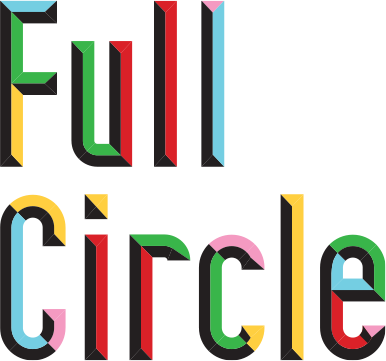Alex Espinoza ’01, Tomás Rivera Endowed Chair of Creative Writing, discusses why he almost quit writing, embracing his identity, and coming back to UCR.
By Omar Shamout
Alex Espinoza returned to UC Riverside last fall as the Tomás Rivera Endowed Chair of Creative Writing. Born in Tijuana, Mexico, and raised in the San Gabriel Valley, he graduated from UCR in 2001 with a bachelor’s degree in creative writing. He later earned an MFA from UC Irvine and served as an associate professor of English at Fresno State University. His novels include “Still Water Saints” and “The Five Acts of Diego León.” His newest book,“Cruising: An Intimate History of a Radical Pastime,” was published in June 2019.
1. What did you read growing up?
I read everything. I stirred up controversy when my elementary school teacher ordered a copy of Judy Blume’s, “Are You There God? It’s Me, Margaret.” All the girls were reading it, and I wanted to as well. They went to our teacher and told her, “He wants to read it, but he can’t because it’s a girl book.” My teacher said, “You’ve got to plead your case.” I explained that I wanted to read it because I was genuinely curious. Ultimately, I ended up winning the trial. (The book) was really good, and I learned a lot.
2. When did you realize you wanted to write?
I’m the youngest of 11. I had to sleep on the couch. The only peace and quiet I got was when I was reading or writing, so I thought I’d learn to channel that out of sheer desire to know about other possibilities and lives beyond mine.
3. What were you writing?
A lot of the stuff was very tortured. My stories were always set in England because all we read in high school was British lit. There were always cemeteries involved, there was always fog, and somebody always died horribly.
4. Did you want to become a writer for a living?
When I got to community college, I believed that if I was going to be the first person in my family to go to school, I needed to study something that was going to pay me really well. I didn’t see writing as viable. It was my English teacher, Judith Ashton, and a counselor at San Bernardino Valley College who urged me on.
5. Did your thinking change?
Slowly, yes. I was part of a statewide community college program called Puente. Its aim is to facilitate the transfer of Latinos from community college to a four-year university through its emphasis on writing, on reading, and social activism. My guidance counselor, Laura Gomez, worked to help us map out our education plan. A lot of the writers our English instructor had us read were Latino or writers of color. That was the first time I encountered authors writing about experiences very similar to my own and my family’s own. It was powerful and revolutionary.
6. What did you do after community college?
I was working retail in Santa Monica and living in L.A. I was hanging out at really cool bars and wearing nice shoes, and I was always broke because I was spending all my money going out to hip restaurants and ordering expensive cocktails. I was utterly careless.
7. How did you wind up at UCR?
My community college teacher and counselor kept at me. Even when I graduated, my counselor would leave me messages on my phone informing me about writing contests. That was what ultimately pulled me back. If she hadn’t done that, I’d probably still be selling furniture to wealthy people from Malibu. I applied to UCR because I knew they had a creative writing major. I knew it was a good school. Plus, it wasn’t far from my mother’s home.
8. What stands out from your student experience?
The first class I took was Beginning Fiction with Susan Straight. I was sitting on the ground because all the desks were taken. Susan was talking about the language our characters use. She said, “Who knows what the word ‘ranfla’ means?” No one raised their hand. I was really insecure. I raised mine. She turned to me and said, “What does it mean?” I said, “It’s a lowrider.” That instantly made me feel like there was a place for me here because the language I spoke, the experiences I knew, were just as valid as any in the academy.
9. How did UCR help you improve as a writer?
My early stories always featured a central character that was a thinly veiled version of myself. My characters were always dying in really horrible ways. Susan pulled me aside and asked, “Why are your characters always dying?” I said, “Because I don’t know how to end my stories.” She replied, “Why don't you just have them go out for coffee? Or talk? They don’t have to die for something significant to happen.” What Susan and everybody else did was they took interest in my work, challenged me, and made me work harder than I thought possible.
10. You started your first novel, “Still Water Saints,” as a student. How did that come about?
I was getting close to my last year, and I was going to take Advanced Fiction with Susan. I thought there was no way I could write a novel because I was intimidated by the very thought. I decided I’d write little vignettes. I thought about this botanica near my mother’s house. My mom used to go there to get things. I would take her because she couldn’t drive. I always loved going in and smelling the incense and seeing the candles and the different ways various religions, practices, and beliefs coalesced. I started writing these stories based on this shop and the people of a small, fictional town interacting with the shop owner. I wrote the first two over the summer before my final year. I emailed Susan and asked if she could read what I’d written. We got together in August. She said, “This is an interesting premise. You didn’t kill anyone, which is good.” That’s all I needed to hear.
11. Your new book, “Cruising,” seems to be your most personal work. Was it difficult to write?
It was nerve-wracking, but it’s also been really rewarding. The things I was the most afraid of revealing are the things people have responded to positively. Readers, particularly men, have thanked me for being so honest.They have shared so much of their own anxieties and fears and experiences dealing with their sexuality.
12. What were some of your experiences?
When I was growing up in the 1980s, if you were gay, and you were in the closet, you went to West Hollywood. I was insecure about my body and my disability. I also had alopecia, so I was losing my hair. The experiences I explore in “Cruising” helped me understand my body and sexuality in a way no book or person or ABC Afterschool Special could. It was something I came to understand on my own, and it taught me it was OK for someone like me to be sexual and be sexualized. Not just because I was gay, but because I was gay, and I was disabled, and I was Mexican, and I was poor.
13. What’s it like being back at UCR?
It’s humbling. When I came to UCR in 1998, one of the classes I took was a world literature class with Professor Stephanie Hammer. One of the TAs began to recognize I was a good writer. At the end of that quarter, she handed me a manila envelope. Inside was a translation of Tomás Rivera’s “And the Earth Did Not Devour Him” and a letter she had written that said, “I hope someday you too will have the opportunity to write a book so people can see what an amazing thinker and writer you are.” She wrote that Rivera was an important literary voice in the Chicano community, and maybe someday I’d follow in his footsteps. When I came for my on-campus interview, I brought that book and that note for luck. Talk about coming full circle, right? It gives me goosebumps.

